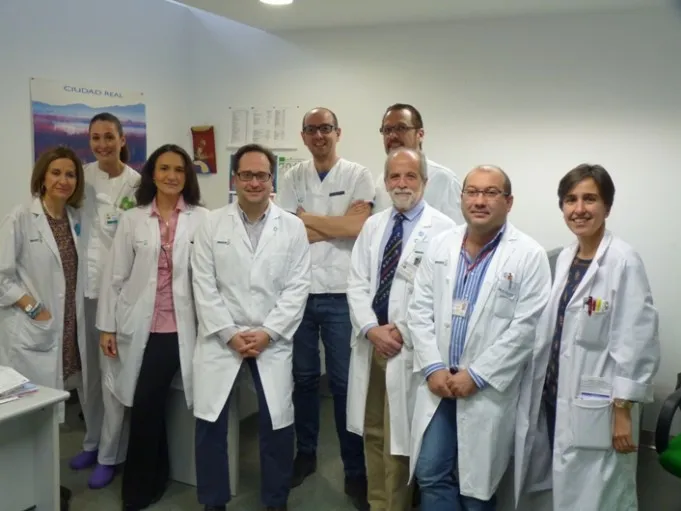The Endocrinology and Nutrition Service of the General University Hospital of Ciudad Real (HGUCR), under the Health Service of Castilla-La Mancha, has designed a protocol to improve the management of the hospitalized diabetic patient.
A useful and easy consultation document designed by the Endocrinology team of Ciudad Real for professionals of the different hospital services, which has been presented this week during the course 'treatment of hyperglycemia and diabetes in the hospitalized patient',and that will be disseminated at the hospital level in next month coinciding with one of the general hospital sessions.
Depending on the situation in which the patient is found, different situations can occur in which the diabetic tends to decompensation of glucose, such as in a preoperative when it is necessary to be fasting or when the use of corticosteroids is required.In these cases it is necessary that the professional has a manageable consultation tool that helps him solve any questions.
The protocol allows to know how to manage the diabetic patient or the person who is not known diabetic, but to which a high level of glucose is detected during admission.
According to Miguel Aguirre, head of the Endocrinology and Nutrition Service of the General University Hospital of Ciudad Real “there is clear evidence that diabetic patients when admitted are decompensated” and it is necessary to provide them with the necessary therapeutic care, since sometimes they have enteredFor any other event and diabetes is in the background.This circumstance causes "a worsening and greater complications of the patient that can prolong their entrance time," adds Aguirre.
Approximately 20% of admitted patients are diabetic, to whom we have to add the "stress hyperglycemia" that are temporarily arise, as well as those patients who do not know that they are diabetic, explains the head of endocrinology.
Silent disease
Currently, the prevalence of diabetes in Spain is 13.8% in the population over 18 and almost half of them do not know that they are diabetic, explains the head of the Endocrinology and Nutrition Service of the Hospital of Ciudad Real.
According to Aguirre, diabetes is a disease that "does not face" and an analysis is necessary to know blood glucose values.Type 2 diabetes is the most frequent and the main risk factors are obesity linked to bad habits and lack of exercise, he says.
In recent years, obesity "has become a real epidemic" and it is necessary to raise awareness of the importance of acquiring healthy habits and performing periodic controls, since not all people with hyperglycemia know that they are diabetic.


